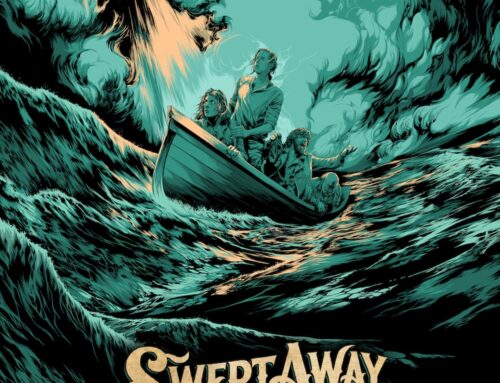 When I teach workshops, there are certain stumbling blocks to smart social PR strategy that come up frequently. As the workshop facilitator, it’s my job to help participants understand how to overcome these challenges or, at the very least, find a way to deal with them that’s not quite as painful.
When I teach workshops, there are certain stumbling blocks to smart social PR strategy that come up frequently. As the workshop facilitator, it’s my job to help participants understand how to overcome these challenges or, at the very least, find a way to deal with them that’s not quite as painful.
Here are the seven most frequently asked questions in my social PR strategy workshops, and how I typically answer them.
1. “Too much to do, not enough time. Now you’re asking me to add social?!”
This is true. But this is true of life in general. As far as social media goes, that’s what smart tools like HootSuite, Buffer, PostPlanner, etc. are for. There are hundreds more useful tools than I can name here, though I do go into some depth in my workshops. For now, I’ll direct you to Ian Cleary’s most excellent tools directory. This is a resource to bookmark if ever there was one.
2. “Social media isn’t part of my job.”
Whoa, Nelly. Just because social media isn’t in your job description doesn’t mean you shouldn’t be keeping up with the times. Regardless of whether your work focuses on government relations, advocacy, member communications, media relations… social media is part of everyone’s job.
Even if you are not directly charged with managing your organization’s social media properties, there is always a way social can support, supplement or complement your job. You just have to find it.
3. “I want to learn how to use Twitter to engage better with reporters.”
I love when I hear this, because there’s a really important word flung in with all the rest; and that word is “engage.” And what we uncover, during the course of the workshop, is how to learn to engage without fear””regardless of who’s on the other end””because it’s only then that true engagement comes into play.
It doesn’t matter if you’re using Twitter, or LinkedIn, or Facebook, or ______. The basic principles of engagement are the same. But it only works if you work it.
And, by the way, “social PR” is not simply about pitching reporters via Twitter. So if that’s all you’re using Twitter for, you’re missing out.
4. “How do I engage my audience?”
Once we establish that engagement is about a change in attitude, then we can start to change behavior. And the key to building engaged audiences (and keeping them that way) is really very simple: you listen, and you respond. Then they respond, and you listen. Then you respond, and then they respond. And so it goes.
How you do this effectively gets us into the realm of tools, platforms, setting up listening dashboards, and so on. And while I truly believe there’s no one-size-fits-all solution, there’s always a way to openly and sincerely listen.
And yes, it takes time. But it’s worth it.
5. “We have a lot of followers, but they don’t do anything.”
Assuming the majority are not bots, this is probably because:
- You haven’t really started engaging with them;
- You’re not asking them to do anything;
- You only (or mostly) talk to them when you want something.
In other words, you have a lot of followers, but no community.
Strategic social PR isn’t just about using new channels to “get your message out.” That’s an extremely dead tree approach to PR in this day and age. What social PR excels at is putting community at the heart of public relations. Invest in your community, and you’ll be amazed at how much they do for you.
6. “There’s so much going on, how do we know what to track?”
Aha! That’s where you have to really blueprint your social PR strategy. Begin at the end, identifying what you’re trying to achieve. And work backwards from there.
If you don’t do this at the get-go, it will be virtually impossible for you to set up an effective listening program (even if it’s very rudimentary), which will hold you back on the engagement front.
If you haven’t already, download my new ebook before it goes behind the “sign up” curtain (tomorrow) -that will get you started.
7. “We want more ______.”
“More” is good… most of the time. But can you identify how more <whatever it is> is going to help you achieve results that make sense from a business point of view? Because if not, then you have to step back and figure out what you’re trying to do, and why it’s important.
It can take a while to get to the bottom of those questions, but it’s really important not to give up.
Because until you do, your efforts won’t be strategic, which is a shame. Because PR that isn’t strategic can be extremely tiring, and disheartening, and make you feel as if you’re walking through a never-ending maze. And why would anyone want to put themselves through that?
I’m sure you come across – or have – other questions on social PR strategy. I’d love to know what they are, so do share via a comment below.





![[EVENT]: PR Hacks for Small Biz (online)](https://shonaliburke.com/wp-content/uploads/2021/06/FB-Ad-1200x800-01-01-01-Copy-500x383.jpeg)



[…] 5. Seven Frequently Asked Questions on Social PR Strategy […]
geoffliving TYVM for sharing!
TheInkybee hughforth profkrg TheJackB TYVM for sharing!
ginidietrich TYVM for sharing, Gini!
Shonali @Susan Allen AND it’s fun! Seriously a lot of fun.
EileenMasciale Baby steps is SO important, Eileen! Kudos on you for getting your clients to “keep calm and carry on.” Because if they don’t focus on the end, there’s no beginning.
Hey, that’s a good line. I’ll have to use it sometime. ;)
@Susan Allen Susan, thank you for the kind words!
Re: followers/community – that really struck me at a recent workshop I facilitated. And I think a lot of companies fall into this trap. They think followers = community. No. A community is a body of people that supports you, roots for you, laughs with you, cries with you. And to me, *that* is real “social PR” – when you can build and maintain a community.
ginidietrich is one of the people who is unnervingly excellent at doing this. Honestly, I marvel at her. So is rachaelseda. And building/maintaining a community isn’t easy – it takes a lot of time, and energy, which need to be sustained. But it’s so worth it.
iancleary Absolutely my pleasure, Ian! It must have taken so much time to put together. Thank YOU!
hughforth Thanks so much for sharing that. If you have thoughts >140, I’d love a comment. :)
shonali Tenacity5Media Jus_Wilson samramuslim joeldon bowden2bowden missusP RealSocialShark claudiaaserna Thank U 4 the content!
jillvan Awesome!
shonali OK will think on it. Glad you’re well! Things here are really great. :)
DonnaPapacosta TYVM Donna!
jillvan I’m doing great, thank you! How about you? If you have any to add, do leave a comment (no pressure!).
shonali Tenacity5Media Jus_Wilson samramuslim joeldon bowden2bowden missusP RealSocialShark claudiaaserna Great company!
shonali markwschaefer jillvan PR4U2 Discoverosity ShellyKramer martinwaxman lkpetrolino SpinSucks Tillison Absolute pleasure
shonali you’re welcome very much! fisher_vista Jus_Wilson samramuslim joeldon bowden2bowden missusP RealSocialShark claudiaaserna
shonali Thanks for writing it. It was really good! Hope you’re well?
lisagerber kateupdates TYSM for sharing!
RenildeDeWit mmangen manda8lynn leaderswest BrennerMichael LisaPetrilli pmswish level343 JasKeller kathikruse TYVM for sharing!
markwschaefer liamarus jillvan PR4U2 Discoverosity ShellyKramer martinwaxman lkpetrolino SpinSucks Tillison TYVM for sharing!
Tenacity5Media fisher_vista Jus_Wilson samramuslim joeldon bowden2bowden missusP RealSocialShark claudiaaserna TYVM for sharing!
What a valuable post! Your comments on engagement are worth repeating over and over. Especially took to heart your distinction between followers and community. Hope to see you soon at another DC event. My best as always.
What a valuable post. You’re comments on engagement alone are worth repeating over and over. I especially treasure the difference between followers and a community. Thanks. Hope to see you at a DC event soon. Susan Allen, your colleague at Hopkins.
Excellent post. You’ve outlined many of the challenges I’m trying to overcome with clients. It’s a culture shift for them and it’s hard to get preconceived notions out of their heads. Focusing on the end goal – which is something we all agree on — is a great place to start. Baby steps.
Shonali I think there is an issue in understanding what PR stands for from
the very people who represent it: PR practitioners. In my understanding, as a PR representative, it´s your job to be everywhere, to know
everything is happening inside and outside the company you represent.
I have often heard: “This is marketing´s job, why do I have to do it?”
Yes,
there are different roles, but if you want to prove the value you bring
for your company, you have to know everything and be everywhere. I
didn´t say it´s easy!
“I am in charge with media relations, why do I have to know about (social media, events, fill in the blanks)?” – For a client is not relevant your role in your department/agency. He/she knows you are his/hers PR and you have to handle things.
Hey Shonali, thanks so much for the mention. Glad you like the directory!!!
Corina Manea Right? I think people put “PR” in such a box, that they consider it to be only media relations, or only this, or only that. The “R” is PR is about RELATIONSHIPS!
What other questions have you heard along these lines, Corina?
Great post Shonali. I liked the “Social media isn’t part of my job.” You´re the PR for your company. Is your company in social? Then you´re there too!
I liked the emphasizes on listen, listen and listen!
rhogroupee TYVM for sharing, Rosemary!
Caroline Avakian Thank you, Caroline, and for taking the time to stop by – happy Friday!
Excellent post, Shonali! Great explanations on what Social PR is and isn’t.